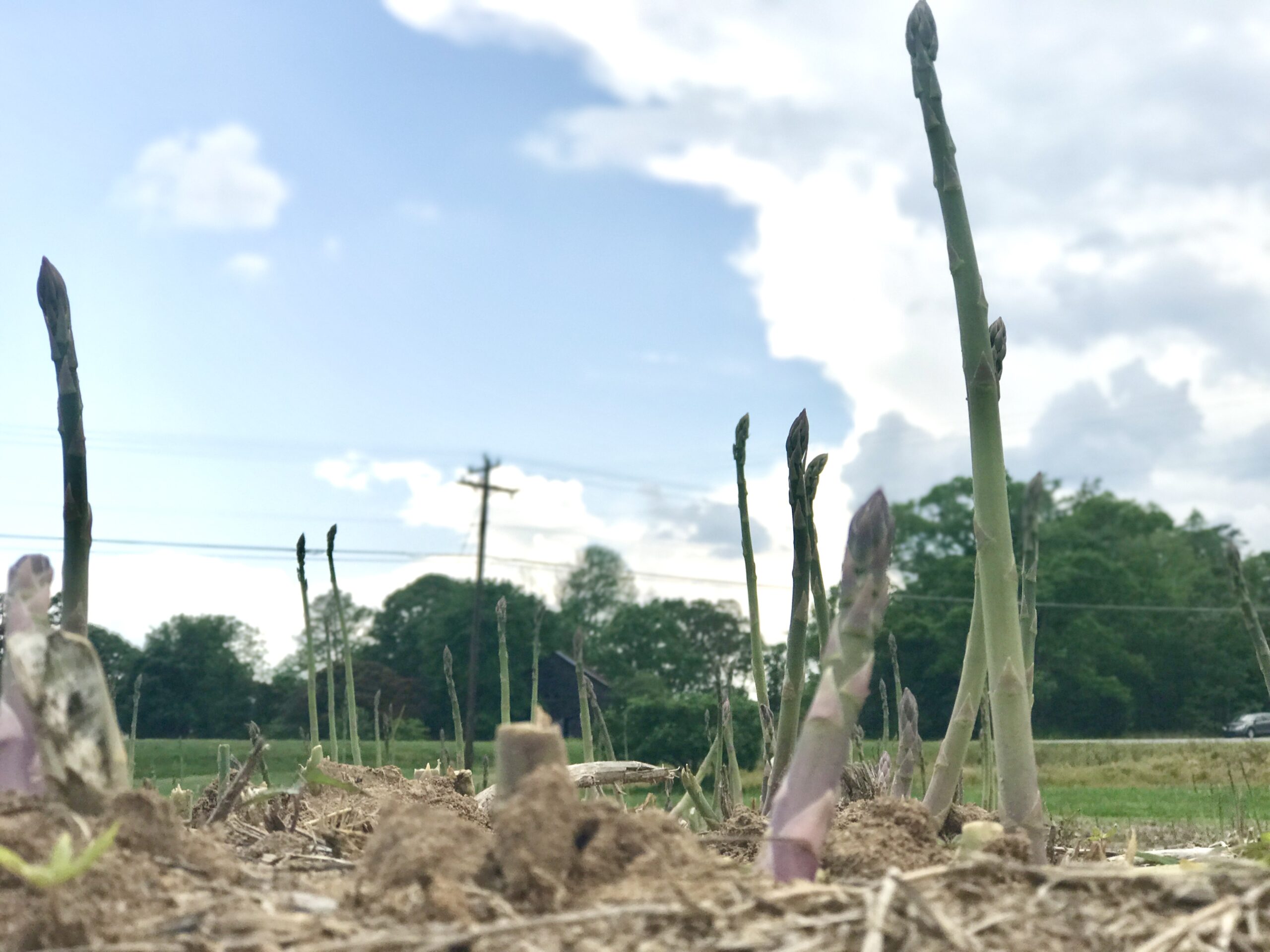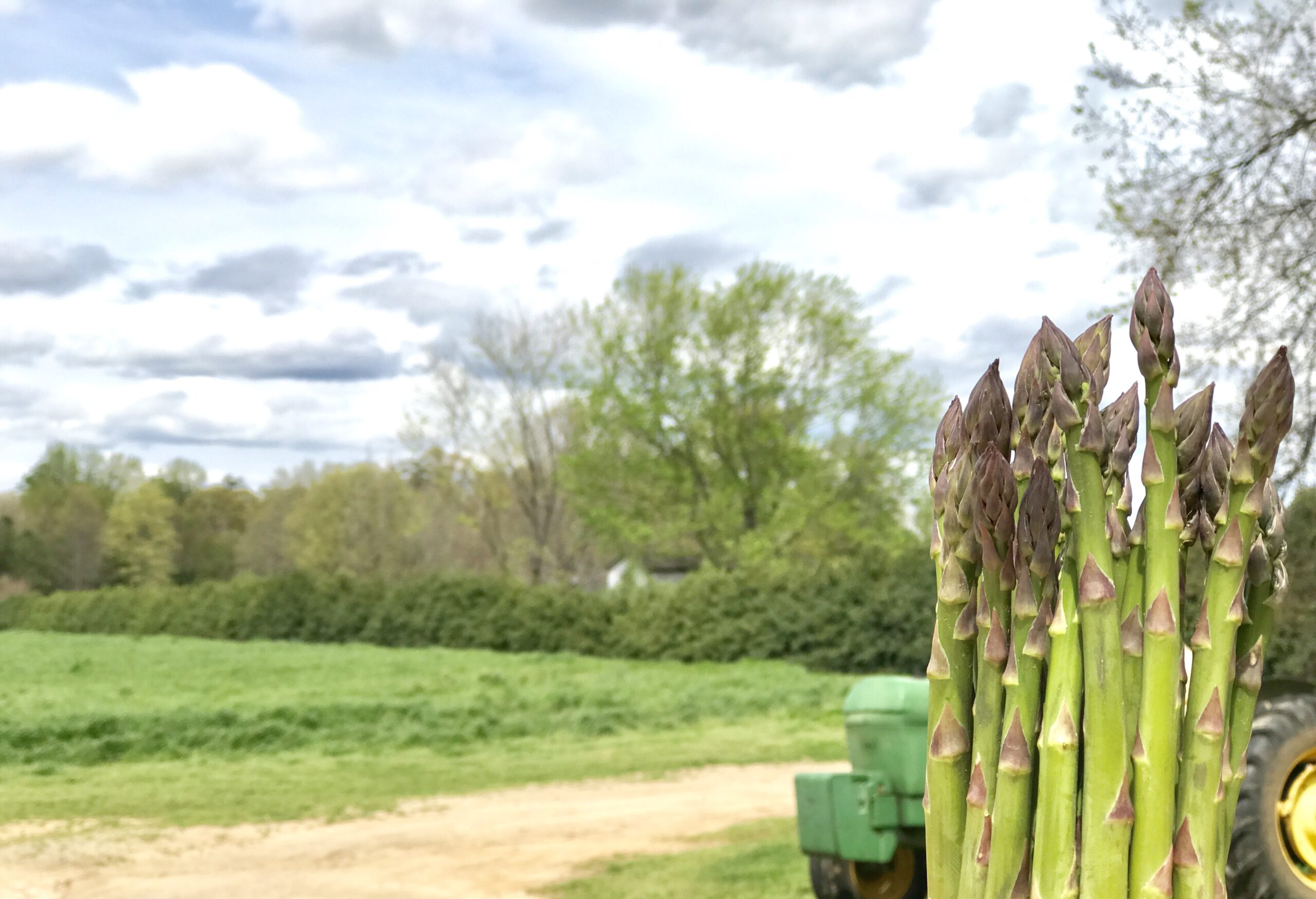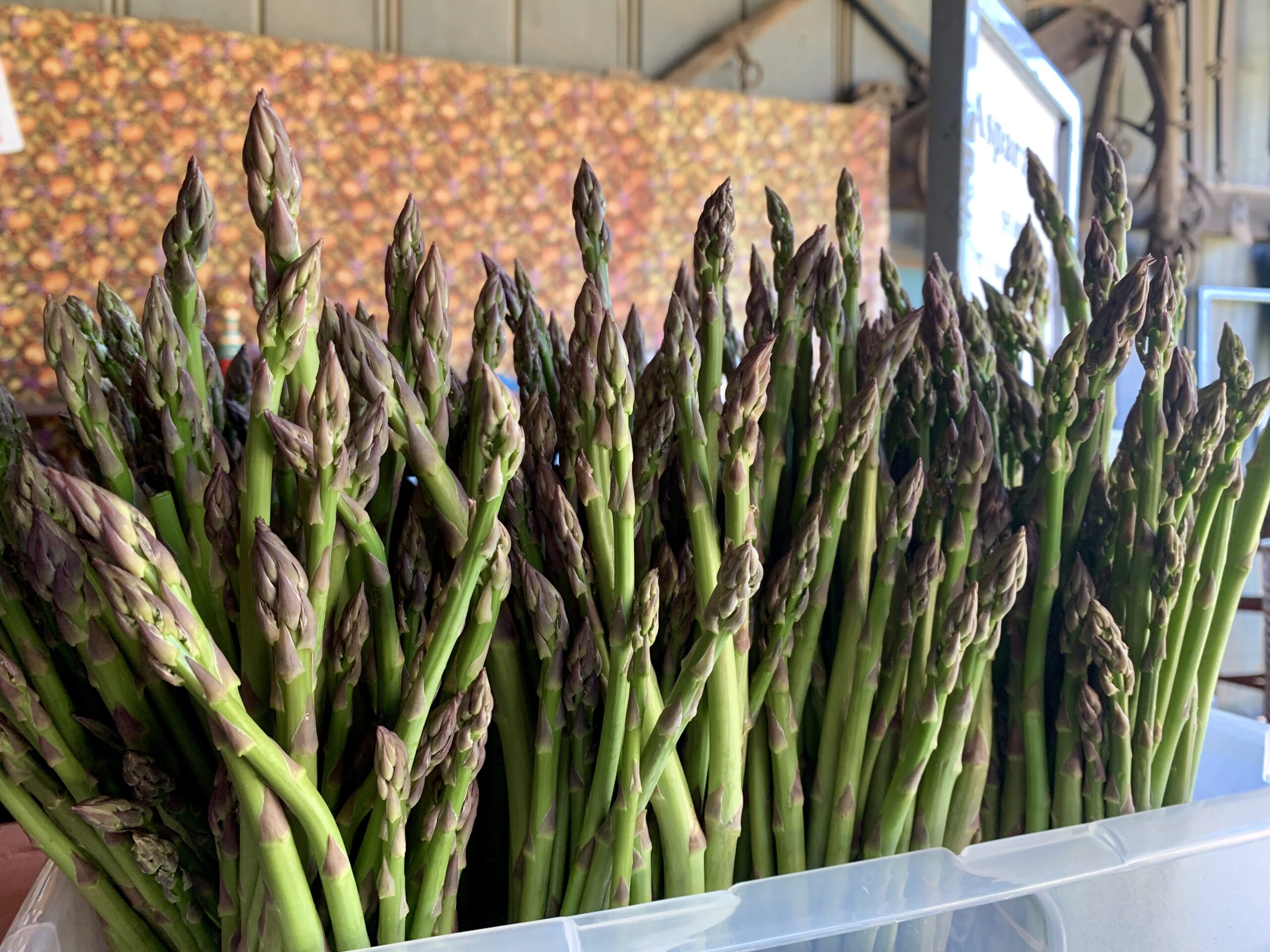White Asparagus vs. Green Asparagus: What is the difference?
Although a bit less common, you may have seen white asparagus and wondered: what’s going on with that? In short: it depends on how much sun the asparagus gets! White asparagus and green asparagus are slightly different, but the same vegetable!

Both colors of asparagus are pretty much the same, just the growing process is different. White asparagus is grown without sunlight, either underground or in dark tunnels. The chlorophyll production that normally occurs in sunlight doesn’t happen – which results in a paler version of asparagus!
This does change the taste of asparagus, and makes it more tender and sweeter than the more common green asparagus. When prepared for cooking, white asparagus normally has the outer layer removed which is tougher than green asparagus, making it more tender after cooking.
Even though white asparagus is grown underground or in dark tunnels, the growing time is the same – both are grown in the spring!
While Carrigan Farms only grows green asparagus, keep an eye out for white asparagus this spring in the grocery store! For more information on asparagus at Carrigan Farms, visit our website here: www.carriganfarms.com/asparagus/



 You can eat asparagus raw
You can eat asparagus raw